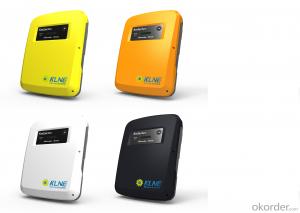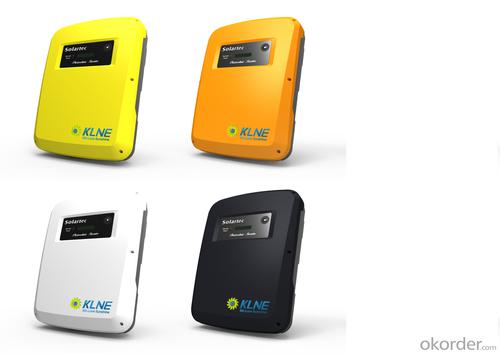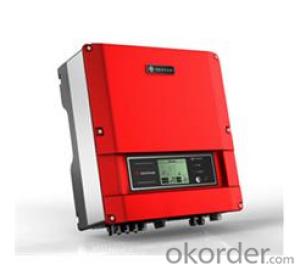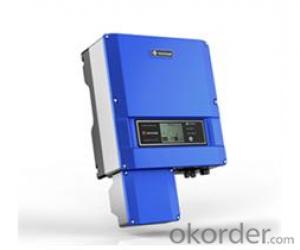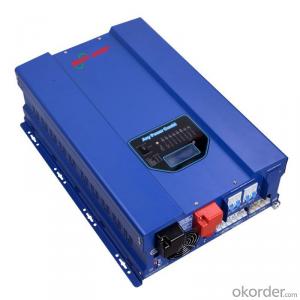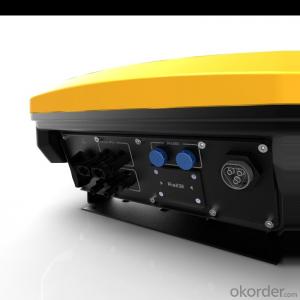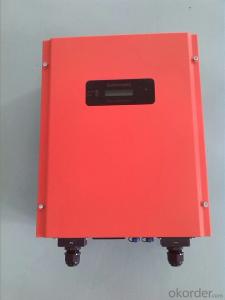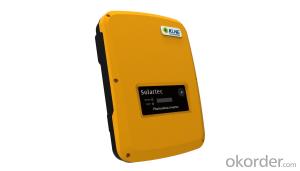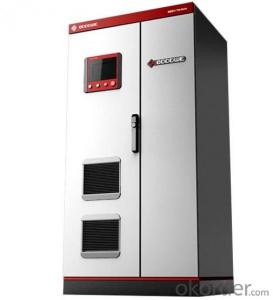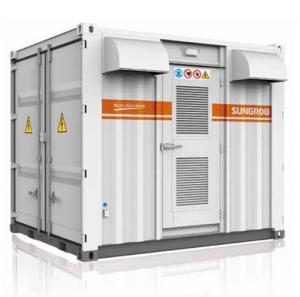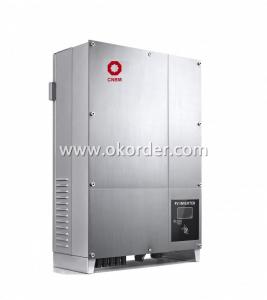Mtn Solar Inverter Solartec Central 100 On-Grid Inverter
- Loading Port:
- China Main Port
- Payment Terms:
- TT OR LC
- Min Order Qty:
- -
- Supply Capability:
- -
OKorder Service Pledge
Quality Product, Order Online Tracking, Timely Delivery
OKorder Financial Service
Credit Rating, Credit Services, Credit Purchasing
You Might Also Like
Solartec Central 100 uses a low frequency transformer. It securely connects the inverter to the grid. The wide range of DC input raises the g
enerating efficiency and return, and facilitates the combination of PV modules. The highest working altitude is 6000m (If above 3000m, it sho
uld be derated before use.) and is suitable for use in various geographical environments.
Efficient
■ Efficiency of up to 98.3 %
Flexible
■ Reactive power supply
■ Extended temperature range from -25°C ~ +55°C
■ Compact dimensions, easier installation
Reliable
■ Active and passive islanding detection
■ Powerful grid management function
■ Low-voltage ride through function
Communicative
■ Optical fiber remote monitoring
- Q: Can a solar inverter be used in regions with high levels of lightning activity?
- Yes, a solar inverter can be used in regions with high levels of lightning activity. However, it is important to ensure that the solar inverter is properly installed and equipped with surge protection devices to mitigate the risks associated with lightning strikes. Additionally, regular maintenance and inspections should be carried out to ensure the safety and functionality of the solar inverter in such regions.
- Q: Can a solar inverter be integrated with energy management systems?
- Yes, a solar inverter can be integrated with energy management systems. In fact, many modern solar inverters are designed to be compatible with energy management systems, allowing for better monitoring, control, and optimization of the energy generated by the solar panels. This integration enables users to track their energy production, consumption, and storage, and make informed decisions on energy usage to maximize efficiency and cost savings.
- Q: Can a solar inverter work without batteries?
- Yes, a solar inverter can work without batteries. In a grid-tied solar system, the solar inverter converts the DC power from the solar panels into AC power that can be used in the household or fed back into the grid. Batteries are not necessary as the system relies on the grid for power supply during periods of low or no sunlight.
- Q: How does a solar inverter handle harmonic distortion?
- A solar inverter handles harmonic distortion by incorporating various filtering and control mechanisms. These mechanisms help to minimize and mitigate the impact of harmonic distortion caused by the non-linear loads associated with solar panels. The inverter typically employs filters and algorithms that actively monitor and adjust the output waveform to reduce harmonics. This ensures that the generated electricity is of high quality and meets the required standards for grid connection.
- Q: How does a solar inverter affect the overall aesthetics of a solar installation?
- A solar inverter does not have a significant impact on the overall aesthetics of a solar installation. Inverters are typically mounted in discreet locations, such as on the side of a building or inside a garage, where they are not visible from the street or prominent areas. Therefore, the inverter's presence does not greatly affect the visual appeal of the solar system.
- Q: How does a solar inverter handle voltage dips or fluctuations in the grid?
- A solar inverter handles voltage dips or fluctuations in the grid by constantly monitoring the grid voltage. When it detects a dip or fluctuation, it rapidly adjusts its output voltage to stabilize the grid voltage. This process is known as grid support or grid-tied operation and ensures that the solar inverter maintains a steady and synchronized connection with the grid, even during voltage disturbances.
- Q: How does a solar inverter handle variations in solar panel degradation over time?
- A solar inverter handles variations in solar panel degradation over time by continuously monitoring the performance of the solar panels. It adjusts the power output and voltage levels accordingly to optimize the energy conversion process. This adaptive capability allows the inverter to compensate for any decrease in efficiency caused by degradation, ensuring maximum power generation from the solar panels throughout their lifespan.
- Q: What are the advantages of using a solar inverter with battery storage?
- The advantages of using a solar inverter with battery storage include the ability to store excess solar energy generated during the day for use during the night or during periods of low solar generation. This allows for increased self-consumption of solar energy, reducing dependence on the grid and lowering electricity bills. Additionally, solar inverters with battery storage provide backup power during grid outages, ensuring a continuous power supply. They also offer flexibility in managing energy usage, allowing homeowners to optimize their energy consumption patterns and potentially earn additional revenue through participation in grid services or time-of-use tariffs. Overall, the integration of battery storage with solar inverters enhances energy independence, resilience, and cost savings.
- Q: Can a solar inverter be used with solar-powered telecommunications systems?
- Yes, a solar inverter can be used with solar-powered telecommunications systems. A solar inverter is an essential component that converts the direct current (DC) generated by solar panels into alternating current (AC) that is required to power telecommunication equipment. This allows for efficient utilization of solar energy in telecommunications systems, making them more sustainable and independent from the grid.
- Q: Can a solar inverter be used in regions with high humidity or moisture levels?
- Yes, solar inverters can be used in regions with high humidity or moisture levels. However, it is important to ensure that the inverters are designed and built to withstand such conditions. Waterproof or moisture-resistant features may be necessary to protect the inverters from potential damage caused by moisture or humidity. Regular maintenance and monitoring are also recommended to ensure optimal performance in such environments.
Send your message to us
Mtn Solar Inverter Solartec Central 100 On-Grid Inverter
- Loading Port:
- China Main Port
- Payment Terms:
- TT OR LC
- Min Order Qty:
- -
- Supply Capability:
- -
OKorder Service Pledge
Quality Product, Order Online Tracking, Timely Delivery
OKorder Financial Service
Credit Rating, Credit Services, Credit Purchasing
Similar products
Hot products
Hot Searches
Related keywords
